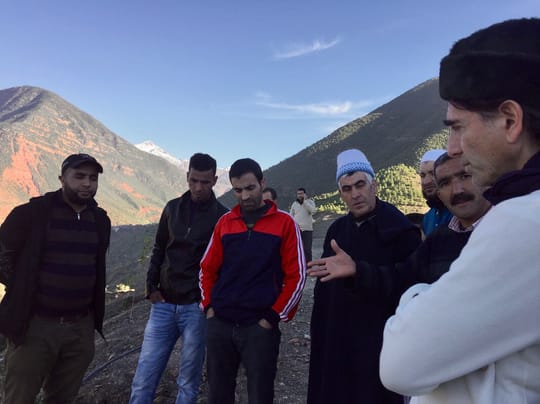This statement was submitted by the High Atlas Foundation which has a consultative status with the Economic and Social Council of the United Nations.
Statement
There is a common denominator among successful human development projects, be they in the field of education, health, economic growth, cultural preservation or the environment, namely that the project beneficiaries themselves participated in their design, management and overall control.
After decades — centuries even — of development interventions and the implementation of strategies to promote human services, the mountain of evidence accumulated worldwide clearly points to popular participation as the primary determinant of successful sustainable development.
The definition of sustainability itself has evolved since its original conception in the late 1980s. Rather than merely emphasizing untenable levels of consumption of natural resources, it has expanded to include a multiplicity of factors — economic, political, cultural, technical, financial, historic, climatic, and more — that bear on the longevity of development projects. Participatory methodology enables the consideration of the wide range of factors mentioned above.
Key strategies employed enable the broad-based catalyzing of community meetings in rural and urban settings. Fundamentally, it should be recognized that facilitators of community dialogue are essential in order to ensure that (a) local meetings are widely attended (b) all voices have the opportunity to be expressed and heard and (c) the community data thus generated is organized and made available to local people so that they may make the most informed decisions possible.
The following recommendations seek to create bottom-up, grassroots participatory development movements, driven by community-owned projects and diverse partnerships.Facilitators of participatory community planning may be literally anyone who has the opportunity to interact with community members and who is accepted in turn in that intermediary or third party role.
1. Facilitators may be — among others — schoolteachers, civil society organizers, government technicians, elected representatives, dedicated women and youth, cooperative members, private sector workers, village leaders or volunteers.
2. Community-driven development that is intended to be launched and supported across municipalities, provinces and regions will thrive to the utmost in a context of decentralization. Decentralization is a state of mind.
Even as subnational-level officials may have the right to dedicate resources to local human development, the habit of decades of deferring to Rabat has become so engrained that very often they do not exercise the power they possess.
3. Power ought to be transferred as close to the people as possible — in Morocco this is the municipal level. The Kingdom also created a fine example in the form of its 2010 amendment of the national municipal charter, with its requirement for locally elected representatives of the people to create municipal development plans based on direct popular participation.
Without essential experiential training in the application of participatory methodology at government level therefore, both effective decentralization and the creation of workable municipal development plans will remain elusive.
It would be helpful to see that the implementation of community projects resulting from a participatory process not only advances the goals of the Post-2015 Agenda but also helps construct a decentralized system of decision-making and management.
Follow HAF on Twitter @HafFdtn or like us on Facebook
Learn more at www.highatlasfoundation.org
For more information please contact: HAF@highatlasfoundation.org ; +212 (0) 5 24 42 08 21
